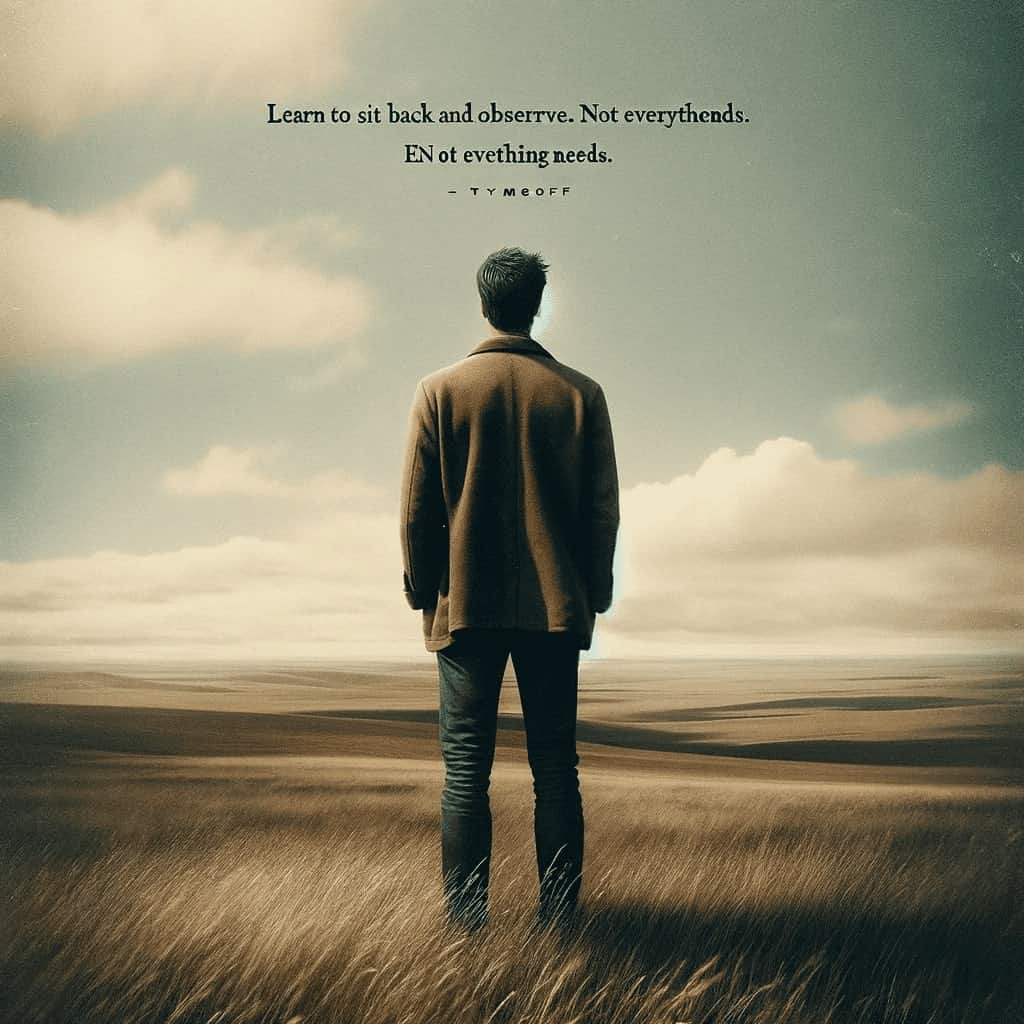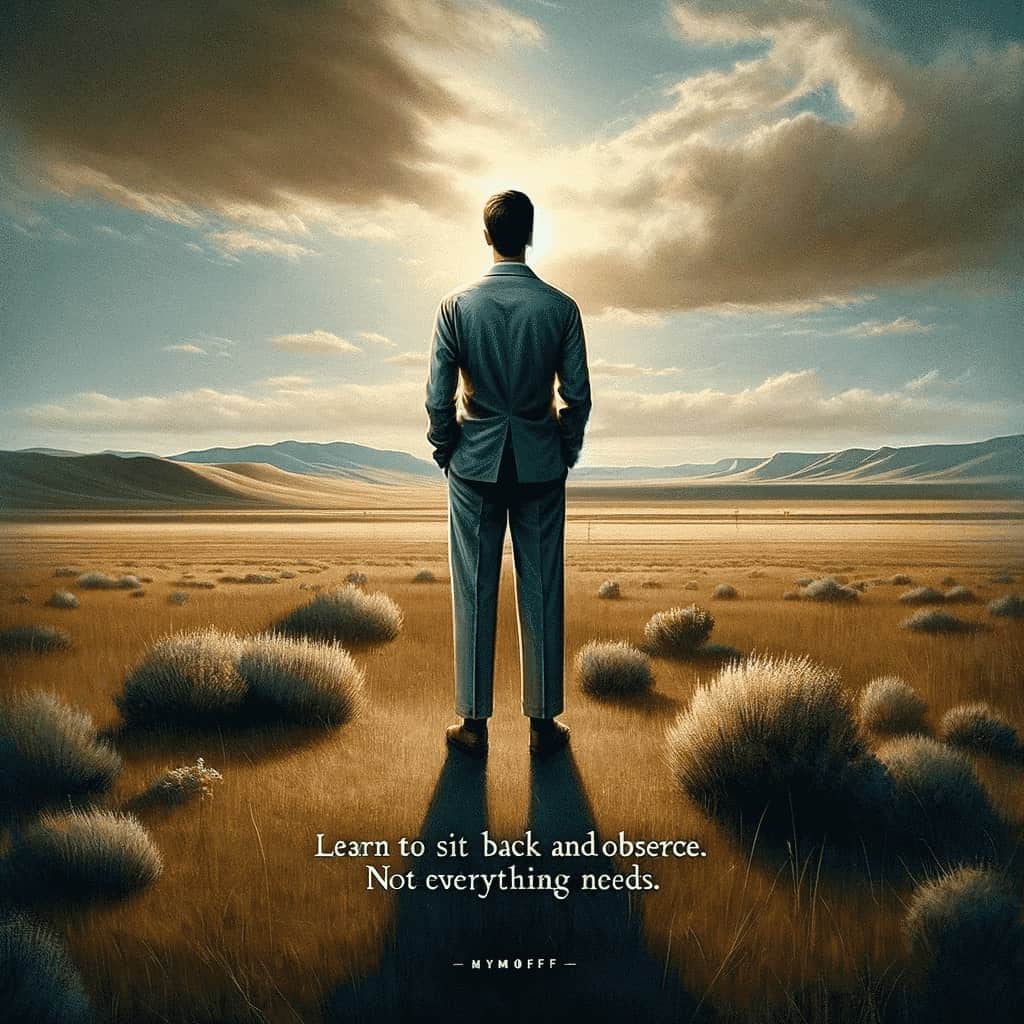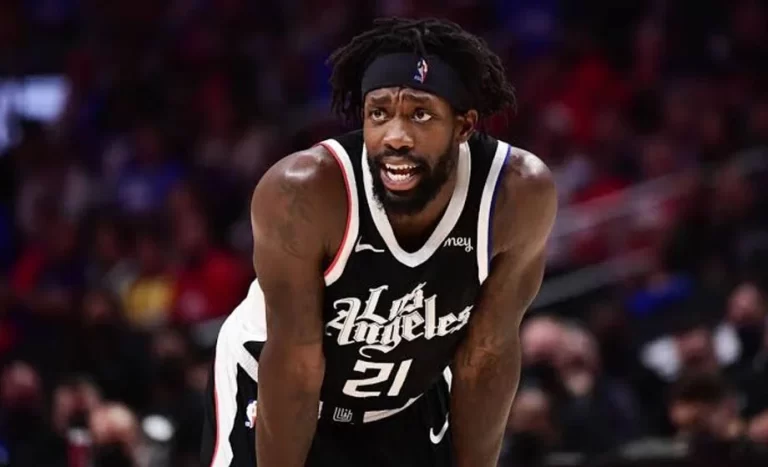Learn To Sit Back And Observe. Not Everything Needs – Tymoff
In our rapidly evolving world, embracing the philosophy of “Learn to sit back and observe. Not everything needs – Tymoff” is not just beneficial but essential. This mindset, which focuses on the power of non-reactivity and observation, offers profound insights into how we interact with our environment, manage stress, and build healthier relationships. Alongside this, another insightful concept to ponder is “Love What You Have, Before Life Teaches You to Love– Tymoff,” which complements the theme of appreciating our current circumstances.
The Importance of Observation
Observation is a key skill in developing mindfulness and non-reactivity. It involves more than just seeing; it’s about fully engaging with the present moment. By observing our environment, our thoughts, and our emotions, we gain a clearer understanding of our reactions and the situations we face. This awareness allows us to respond more thoughtfully and less impulsively, leading to more effective decision-making and interpersonal interactions.
Mindful Living: The Core of Observational Practice
Mindfulness is the foundation of the “learn to sit back and observe” philosophy. It involves being fully present in the moment and aware of our thoughts and feelings without judgment. Through practices like mindfulness meditation, we can train our minds to focus on the present, reducing stress and enhancing our overall well-being. This mindful approach helps us to detach from habitual reactions and see situations more clearly.
Active Listening as a Form of Observation
Active listening is a critical aspect of the “learn to sit back and observe” approach. It’s about fully engaging in conversations and understanding the speaker’s perspective. This practice involves listening without judgment or planning a response, allowing for more meaningful and empathetic communication. Active listening not only improves personal relationships but is also a valuable skill in professional settings.
The Role of Observation in Problem-Solving
In problem-solving, observation plays a vital role. It’s about taking a step back to fully understand the issue at hand. By observing, we can gather more information, consider different perspectives, and develop a well-rounded approach to solving problems. This aligns with the “learn to sit back and observe” philosophy, which emphasizes the importance of pausing and reflecting before taking action.
Journaling as a Tool for Reflective Practice

Journaling serves as an excellent tool for converting observations into actionable insights. It aligns perfectly with the idea that not everything requires an immediate reaction. Journaling provides a reflective space to process thoughts and emotions, facilitating personal growth and clarity of mind.
The Power of Pausing Before Reacting
The practice of pausing before reacting is central to non-reactivity. This habit, encapsulated in the phrase “Learn to sit back and observe. Not everything needs – Tymoff,” allows us to respond to situations in a more thoughtful and less impulsive manner. The pause creates a space for reflection, enabling us to choose responses that align with our values and goals.
Incorporating Mindfulness into Relationships
Integrating mindfulness into relationships translates the concept of “Learn to sit back and observe. Not everything needs – Tymoff” into our interactions with others. Mindfulness enhances communication and deepens connections by fostering a greater understanding of others’ perspectives and feelings.
Dealing With Conflict Through Observation
Observation is a powerful tool in dealing with conflicts. By taking a step back and observing the situation, we can gain a better understanding of the underlying issues. This approach allows us to respond to conflicts thoughtfully and effectively, rather than reacting in ways that may escalate the situation.
Observational Wisdom in Society
The “learn to sit back and observe” philosophy has broader implications beyond personal growth. It promotes a more mindful and empathetic society. By practicing observation, we can contribute to creating a more understanding and compassionate community, where individuals are more aware of their actions and their impact on others.
Conclusion
Adopting the philosophy of “Learn to sit back and observe. Not everything needs – Tymoff” offers a pathway to a more fulfilling and balanced life. It enhances our ability to navigate complex situations, build stronger relationships, and foster personal growth. This comprehensive exploration of the topic underscores the transformative power of mindful observation in our daily lives.







